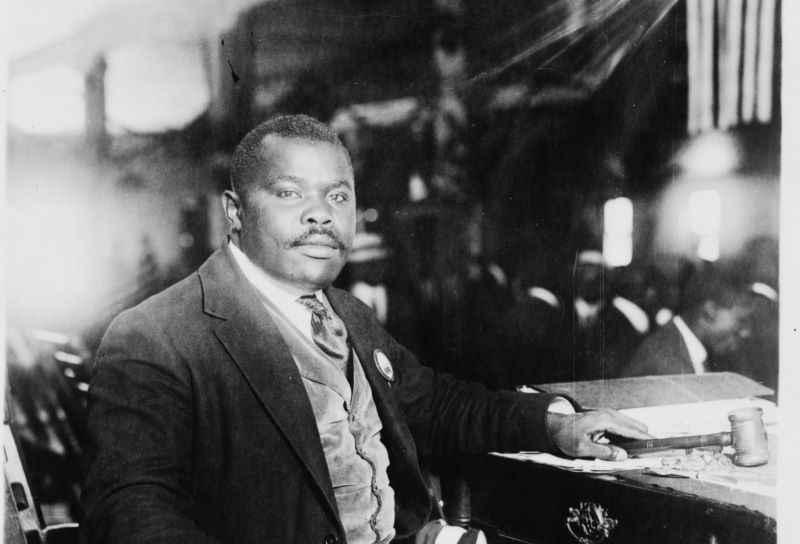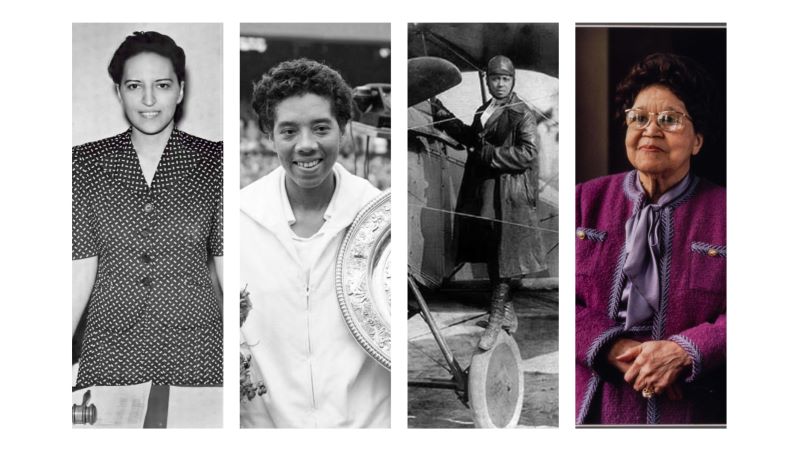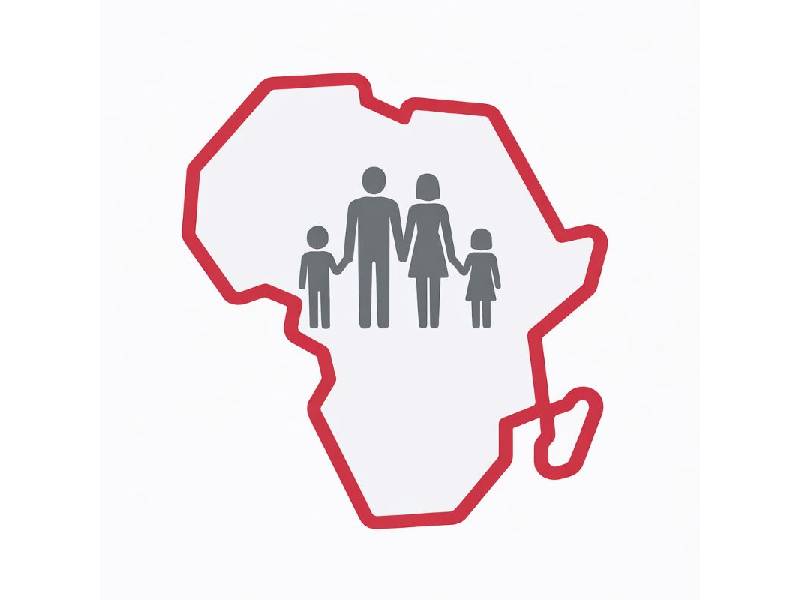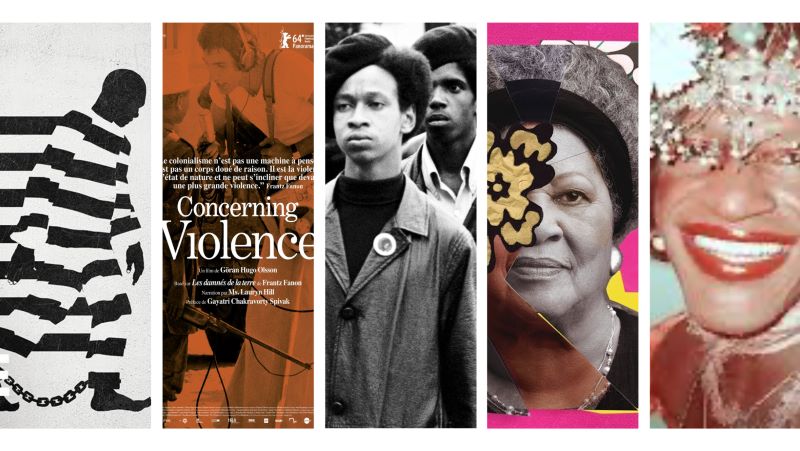Marcus Garvey, 1887-1940. Credit: Library of Congress Archives
The family of Marcus Mosiah Garvey wants President Joe Biden to add one more name to the list of pardons he has issued in his last 12 days in office to redress a century-old miscarriage of justice against the human rights icon. In 1923, Garvey was sentenced to 5 years in federal prison for a $25 mail fraud conviction.
The Center for Global Africa, a human rights organization in Biden’s home state of Delaware, is pressing for Biden to clear Garvey’s name before he leaves office. In support of the Garvey family, they have worked to gather support for a legal petition submitted to the Department of Justice to pardon Marcus Mosiah Garvey and clear his name of any criminal wrongdoing.
“We want Biden to hear from Delawareans who sent him to Congress and the White House in the past 40 years”, says Alicia Clark, Director of Global Partnerships for the Center for Global Africa. “I want the President to know that Garvey’s legacy has significant meaning both here in DE and abroad, nationally and abroad to people of African descent. There has been an acknowledgment by him and his administration that the justice system doesn’t work as it should. If we know the case against Marcus Garvey was riddled with prosecutorial misconduct, that should be corrected”.
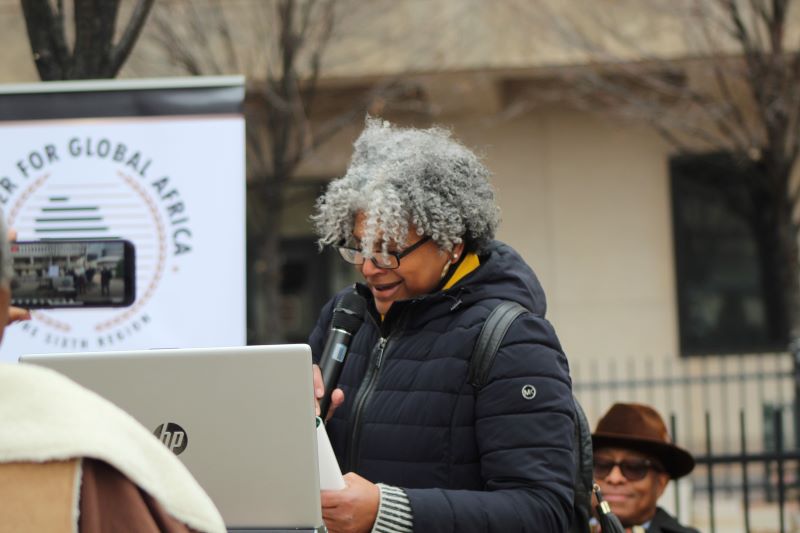
Alicia Clark, Director of Global Partnerships, Center for Global Africa. Photo by Jalynn Smith
The official pardon petition describes a series of legally reversible errors in the 1923 federal trial. The basis for the pardon and exoneration rests on racial prejudice and political persecution to stop his organization—The Universal Negro Improvement Association (UNIA)—and a growing international movement. UNIA had gained more than 6 million members at its height including some 200,000 readers of the national newspaper, Negro World. Garvey, a Jamaican-born immigrant, became a target of the justice department and J Edgar Hoover for at least 3 years before his 1923 conviction.
Dozens of churches, community advocacy organizations, and members of Congress have supported the exoneration since 1987. It is now pending with the Justice Department’s Pardon Attorney. A letter of appeal was also sent directly to the President, signed by 21 members of Congress including Lisa Blount Rochester, now Delaware’s first Black Senator. Their letter outlines a case against Garvey that was “marred by prosecutorial and governmental misconduct”. This Congressional request echoes the evidence presented in the legal petition “that the charges against Mr. Garvey were not only fabricated but also targeted to criminalize, discredit and silence him as a civil rights leader”.
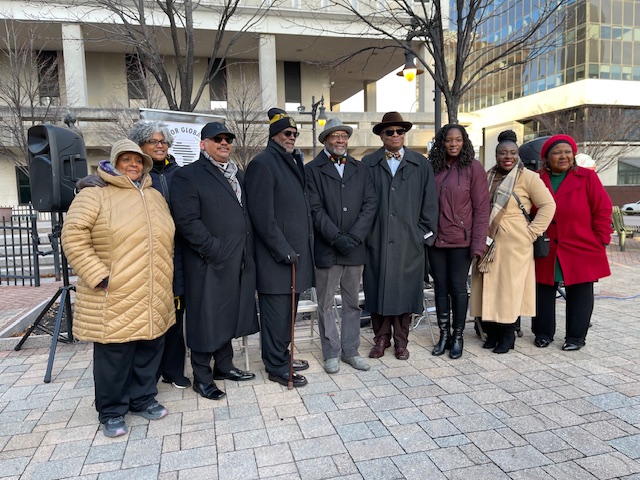
Justice for Garvey supporters, Wilmington, DE. Photo by Jalynn Smith
Garvey’s conviction was predicated on perjured testimony as well as reversible judicial bias. Evidence presented in the petition also reflected the ongoing battle amongst civil rights organizations of the early 1900s. Among his rivals, A. Philip Randolph, newspaper editor Chandler Owen, and the NAACP led the attack against Garvey, organizing a “Garvey Must Go” campaign. The campaign painted Garvey as a fraud, suggesting the Justice Department investigate his Black Star Shipping line for which he was raising millions of dollars. Garvey’s son Dr. Julius Garvey has said the rapidly growing UNIA was costly to these other membership organizations. “The NAACP lost membership from 300,000 to 100,000 from 1919 to the 20s.”
Political and racial hostility was swirling in the environment surrounding the rise of Garvey’s UNIA. In 1918, reports were sent to the Military Intelligence Division of the US Army accusing Garvey of preaching “every night against White people” on Lenox Avenue in Harlem. The War Department, near the end of WWI, was investigating Garvey’s newspaper, Negro World, implying he was a threat to achieving a peace agreement to end “the great war’.
The following year, J. Edgar Hoover was appointed to head the Justice Department’s General Intelligence Division (precursor of the FBI). In the virulent anti-communist atmosphere of the times, evidence includes a Hoover memo that sought reasons to arrest and deport Garvey, described as:
“particularly active among the radical elements in New York City in agitating the Negro movement. Unfortunately, however, he has not as yet violated any federal law whereby he could be proceeded against on the grounds of being an undesirable alien, from the point of view of deportation. It occurs to me, however, … that there might be some proceeding against him for fraud in connection with his Black Star Line propaganda”.
Hoover also attempted to prosecute Garvey on the Mann Act, trying to uncover immoral activity between Garvey and his fiancé, Amy Jacques, then editor of the women’s page of Negro World, by posting spies to watch Garvey’s hotel rooms. This tactic became familiar throughout the civil rights era and was used unsuccessfully against Dr. Martin Luther King 50 years later.
“They could not find fault with him, so the mail fraud became the way they could bring him down”, according to Professor Ezra Aharone, Founder and Chair of the Center for Global Africa(CGA). “A $25 mail fraud charge was what really began to dismantle the movement, to discredit him, to delegitimize his work, and to make Garveyism a pariah.”
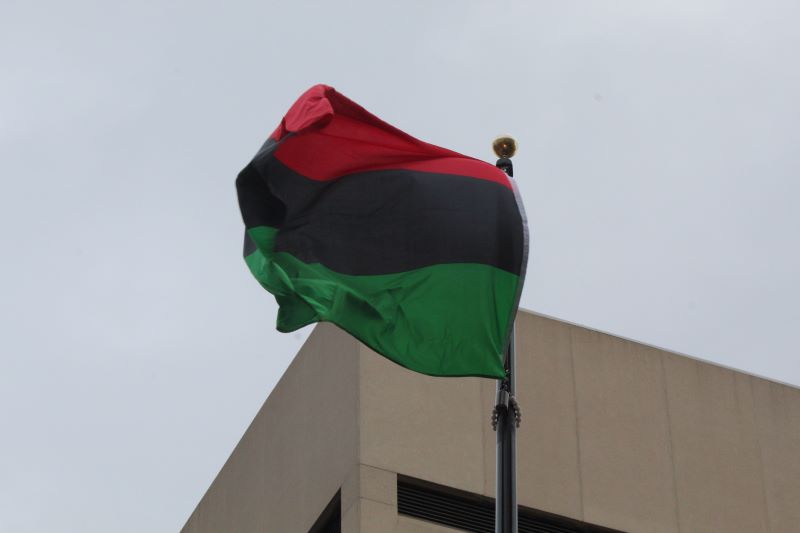
Garvey Liberation flag flies in Peter Spencer Plaza in Wilmington. Photo by Jalynn Smith
The ultimate charge that took Garvey to court was based on a brochure that was mailed to solicit contributions to start the operation of the Black Start Shipping line. He was convicted in 1923 and served two years before President Calvin Coolidge commuted his sentence and Garvey was deported back to Jamaica.
“My grandfather’s conviction was not only a miscarriage of justice but a reminder of how the overreach of power can be weaponized to silence the voices that seek fairness, equity, and accountability.” Garvey’s granddaughter, Nzinga Garvey released a statement to a January gathering of supporters in Wilmington DE who are pushing the Presidential pardon. She stressed the work remaining to repair the system that convicted her grandfather. “Marcus Garvey’s life was dedicated to uplifting humanity, urging us all to embrace a vision of justice that is larger than any single race or nation…..it underscores the deep need for a justice system that protects, not prosecutes those who dare to inspire and empower. This is not a Black issue nor a partisan one. It is an American issue.”
Garvey’s legacy outlived his detractors and elevated him to the status of a historic legend, an entrepreneur, and a pioneering thought leader in the development of Black economic independence and freedom throughout the world. Martin Luther King saw Garvey as “the first man, on a mass scale, and level, to give millions of Negroes a sense of dignity and destiny, and make the Negro feel that he(or she) was somebody”.
Garvey’s only living son, Dr. Julius Garvey, directs the Garvey Institute for Human Development and sees his father’s approach as a call to understand that Africans had been dispersed throughout the world: in the US Latin America, and the Caribbean. He observed the same system that held Blacks as slaves in the Americas also held Africans on the continent in colonial despair and oppression. American slavery and African colonialism had the same roots. The message resonated in the urban centers where Blacks lived in large communities. However, the exponential growth of the UNIA was costly to other US civil rights groups in the early 1900s:
“His organization became so strong because the African population of the United States responded to it. They had gone through 250 years of slavery at that period and 150 years of Jim Crow and apartheid,” Dr. Garvey has said. “The Klan was running loose after the First World War when so many Africans were coming back from the war fighting for democracy in Europe and coming home thinking something should have changed. But the red summer was in 1919 when there were so many race riots from Chicago to Philadelphia. 1917 was [the Black massacre in] Rosewood, Black Wall Street [was destroyed] in 1920. The Klan was lynching at least one person a week. The [Garvey] movement was in the millions at that time and growing.”
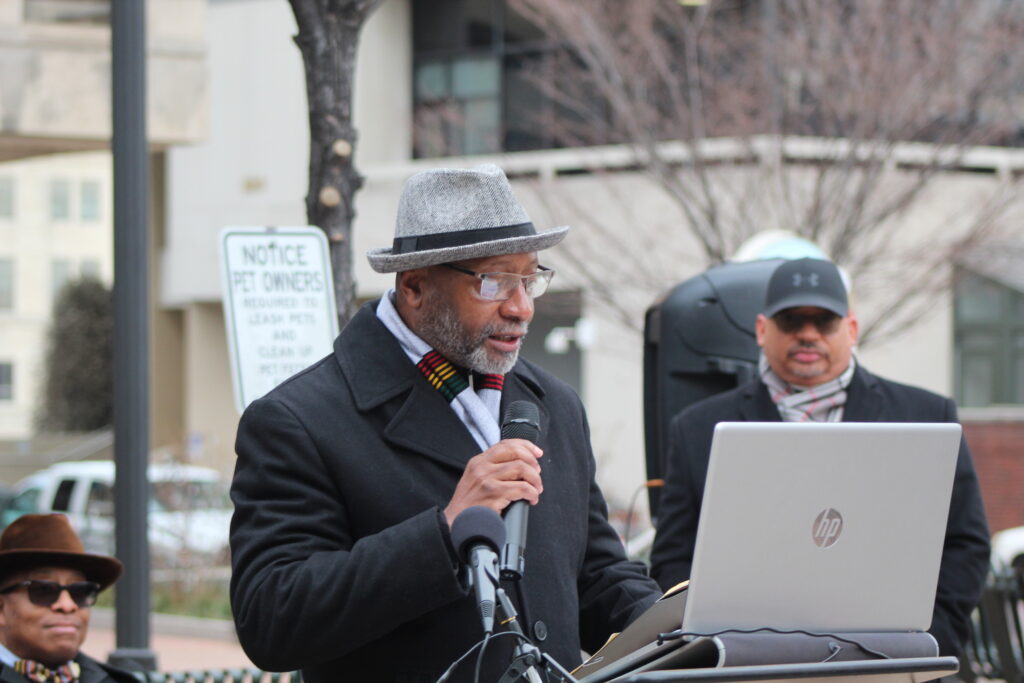
Professor Ezrah Aharone, Chair, Center for Global Africa. Photo by Jalynn Smith
Center for Global Africa Director, Professor Ezrah Aharone views Garveyism as a visionary set of practices based on “economic self-reliance and Pan-African solidarity”. UNIA chapters helped establish Black businesses, facilitated real estate ownership, and encouraged Blacks to have big dreams based on economic independence. Among Garvey’s farsighted enterprises: the Negro World newspaper, Black Cross Nurses, and the Universal African Motor Corps in addition to the Black Star Shipping Line. Garvey’s red, Black, and green liberation flag stands as a cherished symbol of Black nationalism, pride, and cultural independence; it is also a common color scheme of African flags today. Aharone credits Garvey’s declaration of rights of the Negro peoples of the world as a basis for human rights philosophy and belief contained in many of today’s UN proclamations.
Garvey is recognized as a major Pan-African leader although Garvey never traveled to Africa himself. Delegations of UNIA executives engaged with Liberia in attempts to repatriate 20,000 -30,000 African Americans back to Africa. Those attempts ultimately failed as did his Black Star Line, but Garveyism is arguably a strong influence and foundation not only for advancing the civil rights of African Americans but for helping to spark the anti-colonial freedom movements of many African countries.
He had a profound influence on Kwame Nkrumah, Ghana’s first Prime Minister who led the country’s successful fight for Ghanaian independence. Nkrumah reflected Garvey’s thinking about Africans dispersed throughout the world, saying “I am not an African because I was born in Africa but because Africa was born in me”.
Nkrumah treasured Garvey’s writings and philosophy. Garveyism’s premise of “Africa for the Africans, at home and abroad” gave a perspective on decolonization as well as the value of the African diaspora internationally. Nkrumah named Ghana’s early shipping line the Black Star Line after Garvey’s shipping company; and, a Black star is incorporated into Ghana’s national flag.
“Globally, the gravity of Garveyism was a known political force for the independence movements in Africa. Jomo Kenyatta of Kenya and Nelson Mandela of South Africa acknowledge Garvey’s influence”, Aharone told the crowd gathered in January’s subfreezing temperatures to push for a Biden exoneration of the human rights leader.
While Garvey began his efforts to seek relief from his conviction, it was in 1987 that the struggle to clear his name became an official matter for Congress when Congressman John Conyers convened hearings in 1987. For the next three decades, various Black legislators -notable repeated attempts by New York Congressman Charles Rangel-submitted resolutions to give the Garvey family the justice their ancestor deserved. Legal petitions meeting the requirements for requests of this type have been sent to various administrations– including the Obama administration– with no response.
What has been requested is somewhat unusual. Anthony T. Pierce, the attorney who has represented the Garvey family, pro bono, for decades says the family is petitioning for a post-mortem pardon, generally given to living recipients who need pardons for specific, life-altering reasons (finding employment, etc).
“I am hoping President Biden will overcome any concerns about granting posthumous pardons.
I hope that he will see that amongst the people he has pardoned, that Marcus Garvey is as deserving as any.”
The current petition is timely as attention drawn by the recent Biden pardons, including his son Hunter, has generated a public furor. There is precedent for posthumous pardons including the Trump pardon of African American boxer, Jack Johnson. The Garvey petition was not submitted to the first Trump administration.
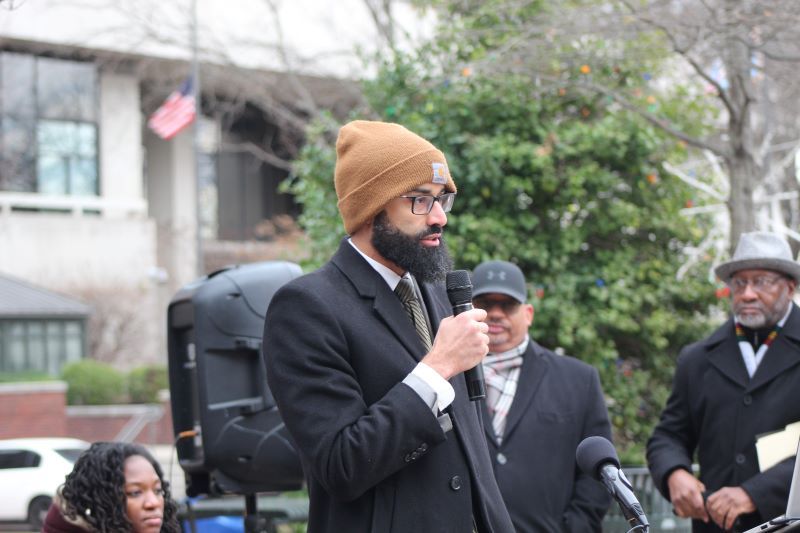
Emery Abdel-Latif, President, Delaware Barristers Association Photo by Jalynn Smith
The struggle to clear Garvey’s name has been supported by dozens of churches and community advocacy organizations for nearly 40 years. The Delaware Barristers Association defends Garvey’s reputation for his historical contributions:
“He founded an international movement for Black dignity and integrity before it was cool, without the benefit of the internet, or even television or even a high school degree”, says Barrister President Emery Abdel-Latif. “He had little more than a powerful dream and oratorical skills he honed on a Harlem street corner. I join the call on President Biden to pardon Marcus Garvey for the very simple reason that how we remember our history matters, whether we remember our history matters. He ought not to be remembered as a felon but as the leader of a movement that spanned generations and borders.”
For the family of Marcus Mosiah Garvey, his pardon transcends a personal vindication for their family:
“The exoneration of Marcus Garvey is about more than his name”, Nzinga Garvey explained to the Delaware advocates. “It is about reclaiming the soul of a nation that believes in fairness over fear and dignity over division in righting the wrongs of history so we can face the future with integrity.”
When Garvey exhorted Blacks to action with his famous call “Up you mighty race, accomplish what you will”, he expanded the world view of millions of Africans. He is also remembered for his description of his life’s meaning: “My firm purpose, my one purpose in life is to work for the salvation of my race”.
With the paperwork well executed through decades of submissions and validation, President Biden can clear Garvey’s name and reaffirm his purpose with the stroke of a pen. He has less than two weeks to accomplish what he might.
Read also: President Biden Pardons Civil Rights Icon Marcus Garvey Posthumously

